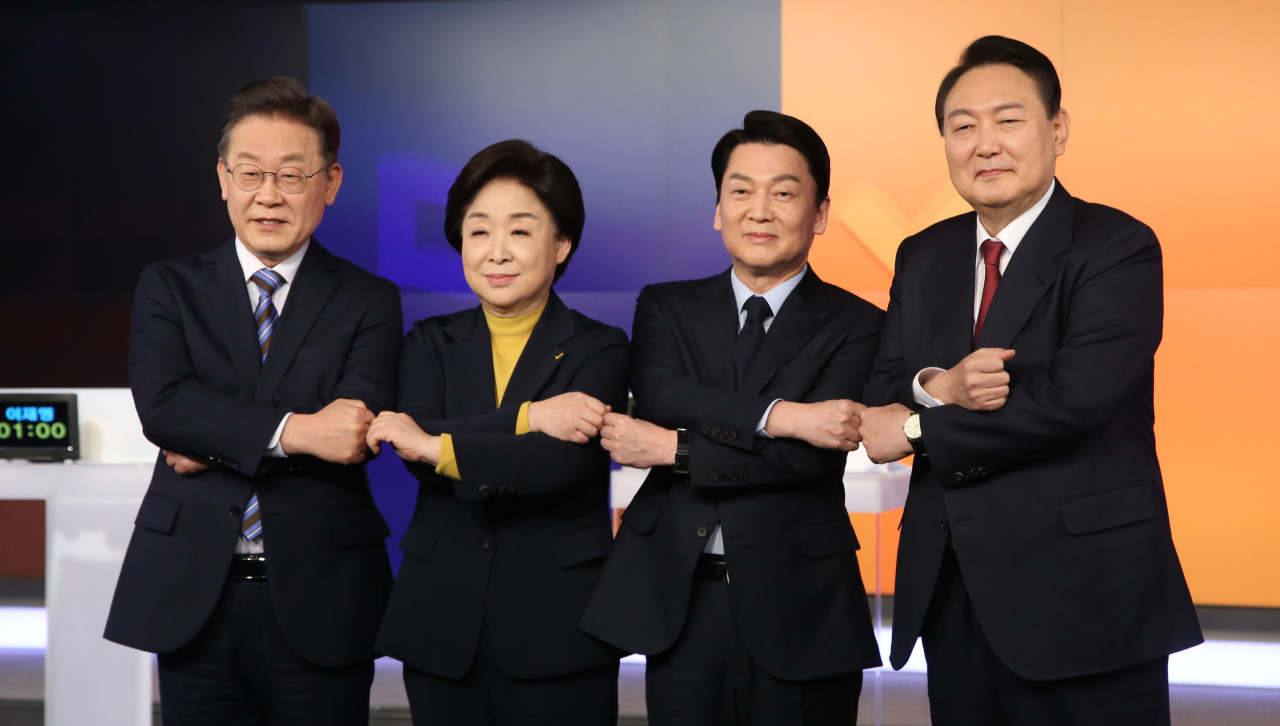 |
Presidential nominees for four major political parties of South Korea pose for a photo Friday before engaging in the second debate program held ahead of the presidential election next month. (Joint Press Corps) |
The four major candidates in the ongoing presidential race for South Korea were united in the need to assure freedom of the press, but had differing views on whether additional agencies or laws were needed to achieve it and to protect people from false reports.
The responses were made following a general question during a debate program Friday on what measures candidates have in mind to protect freedom of the press, respond to victims of "fake news" and prevent undue influence from the government on media reports.
But candidates differed on what measures were needed to achieve the goal.
Lee Jae-myung of the ruling Democratic Party of Korea strongly denounced the role of "fake news" in damaging the lives of its victims, saying criminal complaints and legal proceedings were not sufficient to solve all related problems.
He stressed that a new arbitration agency could be helpful in achieving the goal while letting media outlets freely report.
The candidate also said that the government should not be involved in selecting chief executives for public broadcast stations, and that this would be enough to assure fair and unbiased reporting from their journalists.
Yoon Suk-yeol of the main opposition People Power Party stressed the legal system in place, in which media companies and reporters take responsibility for wrongdoings they commit when they report and share falshoods or violate others’ rights, was enough to meet the goals.
If executed right, he said the judicial system was enough to ensure reporters meet their responsibilities and refrain from disseminating false reports. While he acknowledged a separate arbitration agency could help achieve the goal, he emphasized that no limitations should be placed on journalists and their work.
Rep. Sim Sang-jung of the minor left-wing Justice Party said there existed a need for a media arbitration law that protects people damaged by false reports while simultaneously protecting the rights of journalists.
Sim added she would prioritize improving the governance of public broadcast companies to assure their independence from the central government if she wins the race, adding she would have the general public take part in the decision process of selecting chief executives of these broadcast firms.
Ahn Cheol-soo of the minor opposition People's Party agreed on the need to establish an independent arbitration agency. He added a separate independent committee must be made to decide chief executives and directors of public broadcast companies.
By Ko Jun-tae (
ko.juntae@heraldcorp.com)








